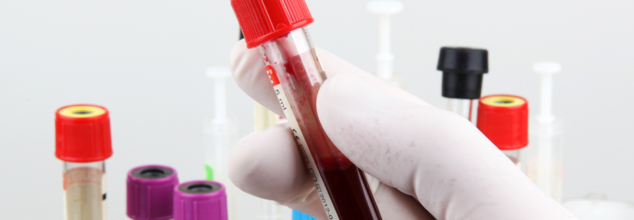- Health Conditions A-Z
- Health & Wellness
- Nutrition
- Fitness
- Health News
- Ayurveda
- Videos
- Medicine A-Z
- Parenting
- Web Stories
Hepatitis On Rise In India: What Is Causing It?

Credit: Canva
Hepatitis, a disease that causes inflammation of the liver, is more prevalent than HIV in India and has a mortality rate exceeding nine times that of TB. The inflammation of the liver can be caused by a number of things, including viruses, chemicals, drugs, alcohol, genetic disorders, or an overactive immune system. It usually presents with symptoms like fever, jaundice and abdominal pain, vomiting and nausea, loss of appetite and acute liver failure.
Rising Hepatitis Cases In Children
As per Liver Specialists, the recent rise in hepatitis cases among children could be attributed to several factors, including inadequate sanitation and hygiene practices, contamination of food and water supplies, low level vaccination coverage and increased exposure to hepatitis virus. Moreover, the cases rise of Hepatitis A and E, significantly rise in monsoon, sewages overflow and contaminate water sources.
According to Dr BS Ahuja, M.B.B.S, M.D (medicine) at Kharay Hospital, Ludhiana, said "Street food is the largest cause of liver infection through contaminated food and water in India", he said. Adding further, Dr Ahuja opined, "While most liver infections are self-limiting, meaning they resolve on their own, about 2% can become life-threatening, especially if left undetected".
Is Diet Important In Preventing Hepatitis?
Diet plays a crucial role in both the prevention and management of liver infections, particularly Hepatitis. Even in extreme cases of infection, proper hydration is the key, besides eating nutrient-rich food. Avoiding certain foods, especially those prepared under unhygienic conditions, plays a crucial role when it comes to prevention.
Street foods like panipuri and chaat are particularly risky. Food items involving unboiled water, raw salads and juices also put you at risk. Dr Thiagarajan Srinivasan, Liver Transplant Specialist at MGM Healthcare, emphasises that even food cooked at home should be handled with care. "Avoid eating food that was cooked more than 12 hours ago. Additionally, food should only be reheated once, and fried foods should not be reheated at all."
He also talked about the concerning trend which involves the use of used cooking oil by smaller eateries as a cost-cutting measure. These oils, often sourced from high-end restaurants, pose serious health risks and should be avoided at all costs.
Blood Tests Could Reveal Cancer Cells 3 Years Before The Actual Diagnosis

(Credit-Canva)
With a global estimate of 20 million cases in 2022, cancer is the leading cause of death worldwide. Cancer diagnoses can turn people’s lives upside down, as the diagnosis is followed up by treatments such as chemotherapy, immunotherapy, or even surgeries. The best way to deal with cancer is catching it early, however the chances of catching it early are very low. Many people only visit their doctors when they see concerning symptoms, but that could also mean that the cancer has progressed much further, reducing the chances of survival.
A new small pilot study suggests that a type of blood test could potentially find signs of cancer up to three years before it would typically be diagnosed. These tests, called multicancer early detection (MCED) tests, look for tiny bits of genetic material that tumors release into the bloodstream.
How the MCED Test Works
This special MCED test works by looking for what's called "tumor DNA" in your blood. Tumors, which are growths of cancer cells, shed little pieces of their genetic material into your bloodstream. The test is designed to pick up on these tiny clues. In the study, it actually found this cancer DNA in some people's blood up to three and a half years before they were officially diagnosed with cancer.
Researchers from Johns Hopkins, said that finding cancer this early could lead to much better results for patients. It's like getting a head start on fighting the disease. They also mentioned that we'd need to figure out the best way to follow up with someone if this test came back positive so early.
Early Findings from the Pilot Study
For this initial study, the researchers looked at blood samples that were already collected for a big heart disease study. They used the MCED test on two groups: 26 people who were diagnosed with cancer within six months of giving their blood, and 26 similar people who didn't get cancer.
The results were quite telling: eight of the 52 blood samples came back positive on the MCED test. And sure enough, all eight of those people were diagnosed with cancer within just four months of their blood sample being taken. The types of cancers found included colon, pancreatic, rectal, lung, breast, and liver cancer. Sadly, five of these eight patients later passed away from their cancers. This shows how serious these diseases are, even when found relatively early.
Uncovering Cancer Even Earlier
To push the boundaries even further, the researchers looked at older blood samples from six of those eight patients. These samples were taken a remarkable three to three and a half years before their cancer diagnosis.
They found tumor DNA in four of those much older samples! This strongly suggests that these cancers could have been spotted years earlier, which could have given doctors a significant head start on treatment. Researchers explained that this study really shows how promising MCED tests are for finding cancers very early. They believe it sets a new standard for how sensitive these tests need to be to truly be successful.
More Research and Enhanced Sensitivity
While these findings are very exciting, it's important to remember this was a small pilot study. We need much bigger studies to confirm these results. However, the initial findings strongly suggest that this type of blood test could be a game-changer, helping us catch cancers when they are much smaller and easier to treat, increasing the chances of survival.
The researchers also pointed out that their main goal was to show how early cancer DNA can be detected in the blood, not just to prove a new test works. They also noted that to find cancers three or more years before a diagnosis, these blood tests will need to be 50 times more sensitive than the ones currently used to detect cancers within six months.
Auto-brewery Syndrome: When Your Gut Makes You Feel Like You Are Drunk Without Alcohol

Credits: Canva
Auto-Brewery Syndrome, also known as gut fermentation syndrome, is a rare medical condition where the digestive system produces alcohol internally. This happens when certain microorganisms—mostly yeasts like Candida or some bacteria—ferment carbohydrates in the gut, creating ethanol. The ethanol then enters the bloodstream, causing symptoms such as dizziness, disorientation, fatigue, and even slurred speech, mimicking alcohol intoxication.
How Does It Happen?
ABS typically occurs when the natural balance of the gut microbiome is disrupted. This disruption can follow antibiotic use, gastrointestinal infections, or diets high in refined carbohydrates. In some cases, people with diabetes or existing gut disorders are more prone to developing the condition.
When the gut environment changes, fermentative microbes may flourish. These microbes thrive on simple carbohydrates and sugars, converting them into alcohol during digestion. While most people efficiently digest these foods without any issue, those with ABS experience a build-up of ethanol, leading to unwanted and surprising symptoms.
The Role of Bread and Carbohydrates
Bread—especially white or refined varieties—is rich in simple carbohydrates. For most people, eating bread in moderation doesn’t cause harm. In fact, whole grain bread can be beneficial due to its fibre content, which supports healthy digestion and feeds good gut bacteria.
However, when eaten in excess, particularly in its refined form, bread can contribute to an overgrowth of fermentative microbes in susceptible individuals. This can lead to symptoms like bloating, gas, discomfort, and, in rare cases like ABS, internal alcohol production.
A Simple Remedy: Psyllium Husk
To support gut health, many wellness experts recommend incorporating psyllium husk, or Isabgol, into your routine. Psyllium is a soluble fibre that absorbs water and forms a gel-like substance in the gut. This helps regulate bowel movements, slows down carbohydrate absorption, and may prevent the rapid fermentation of food in the intestines.
By stabilizing digestion and reducing the speed at which carbs are broken down, psyllium can help minimise gas, bloating, and the risk of ethanol build-up—making it a helpful tool for those concerned about gut health.
Supporting a Healthy Gut
Managing ABS or preventing gut issues doesn't require drastic changes. Here are a few everyday habits that support better digestion:
- Limit intake of refined carbohydrates and processed foods
- Choose whole grains, fresh fruits, vegetables, and lean proteins
- Include fermented foods like yogurt, kefir, or pickles
- Stay active and hydrate well
- Manage stress through breathing exercises, meditation, or regular routines
Auto-Brewery Syndrome is an unusual and extreme case, but it highlights a powerful truth: the food we eat shapes our internal health in surprising ways. Paying attention to our gut and making mindful dietary choices can go a long way in supporting not just digestion, but overall well-being.
Parents Could Be Leading Their Children To Food Allergies Unknowingly

(Credit-Canva)
You may know about people who avoid certain foods like peanuts, berries or eggs because they are allergic to it, but what does that mean? Food allergies can happen to anyone. It is a condition where your body’s natural defenses overreact to exposure to a particular substance. The American College of Allergy, Asthma & Immunology explains that our body’s immune system basically mistakes food or a particular particle as an invader or a threat to your body.
This then causes your immune system to release ‘defense’ chemicals that can cause reactions like nausea, swellings, dizziness or worse, anaphylaxis. Anaphylaxis is a whole-body reaction that can impair your breathing and cause a dramatic drop in blood pressure. Life-threatening reactions like such are the reason why many parents are apprehensive about introducing certain foods to their children. However, could that be the reason why children are developing more allergies?
A new study published in the European Journal of Clinical Nutrition found that some parents are waiting much longer—a year or even more. Many parents, understandably worried, might actually be preventing their children from avoiding food allergies. Experts now say that introducing tiny amounts of common allergy-causing foods like peanuts and eggs to babies as young as 4 to 6 months old can help them build a strong defense. This delay could mean their children don't get the chance to become tolerant to these foods, increasing their risk of developing allergies.
Delayed Introduction Trend
The study looked at what parents are feeding their babies and found some interesting, and perhaps concerning, trends:
Nuts: About 35% of babies hadn't eaten nuts by their first birthday.
Eggs: Similarly, around 21% of parents hadn't given their one-year-olds any egg.
Sesame: And for sesame, 16% of babies hadn't tried it by age one.
These numbers come from a survey of parents in the UK, who are part of a study tracking their children's health over time.
Persistent Misconceptions And How It Affects Health
For many years, parents were told to avoid giving allergenic foods to babies and even during pregnancy. The idea was to prevent allergies. However, we now know that this advice might have actually made allergies more common, especially in children.
Researchers explain that studies as such are very important. Parents must update themselves regarding new food allergy guidelines. This understanding is important as if parents keep waiting to introduce these foods, it will continue to fuel the "allergy epidemic" we're seeing.
The researchers talked to nearly 400 parents involved in a project tracking children's health from birth. They found that most children did start eating common allergenic foods like eggs and nuts when they were between 6 and 9 months old. However, many parents still chose to wait longer for certain foods:
Sesame: About 26% of parents waited until their child was older than 9 months.
Fish: 25% delayed introducing fish.
Nuts: 21% waited longer for nuts.
Eggs: 11% held off on eggs.
The researchers concluded that even parents whose families had a history of allergies weren't following the updated advice. Many babies weren't exposed to nuts and eggs by their first birthday, which is a key time for building tolerance.
Bridging the Knowledge Gap
These findings suggest that the new guidelines about food allergies aren't reaching new parents clearly enough. Research consistently shows that introducing allergenic foods early, especially nuts and eggs, lowers the risk of developing allergies. In fact, for babies at high risk of allergies, experts even suggest introducing peanut-containing foods as early as 4 to 6 months of age. It's crucial for this message to get out so more children can benefit from these updated recommendations.
© 2024 Bennett, Coleman & Company Limited

